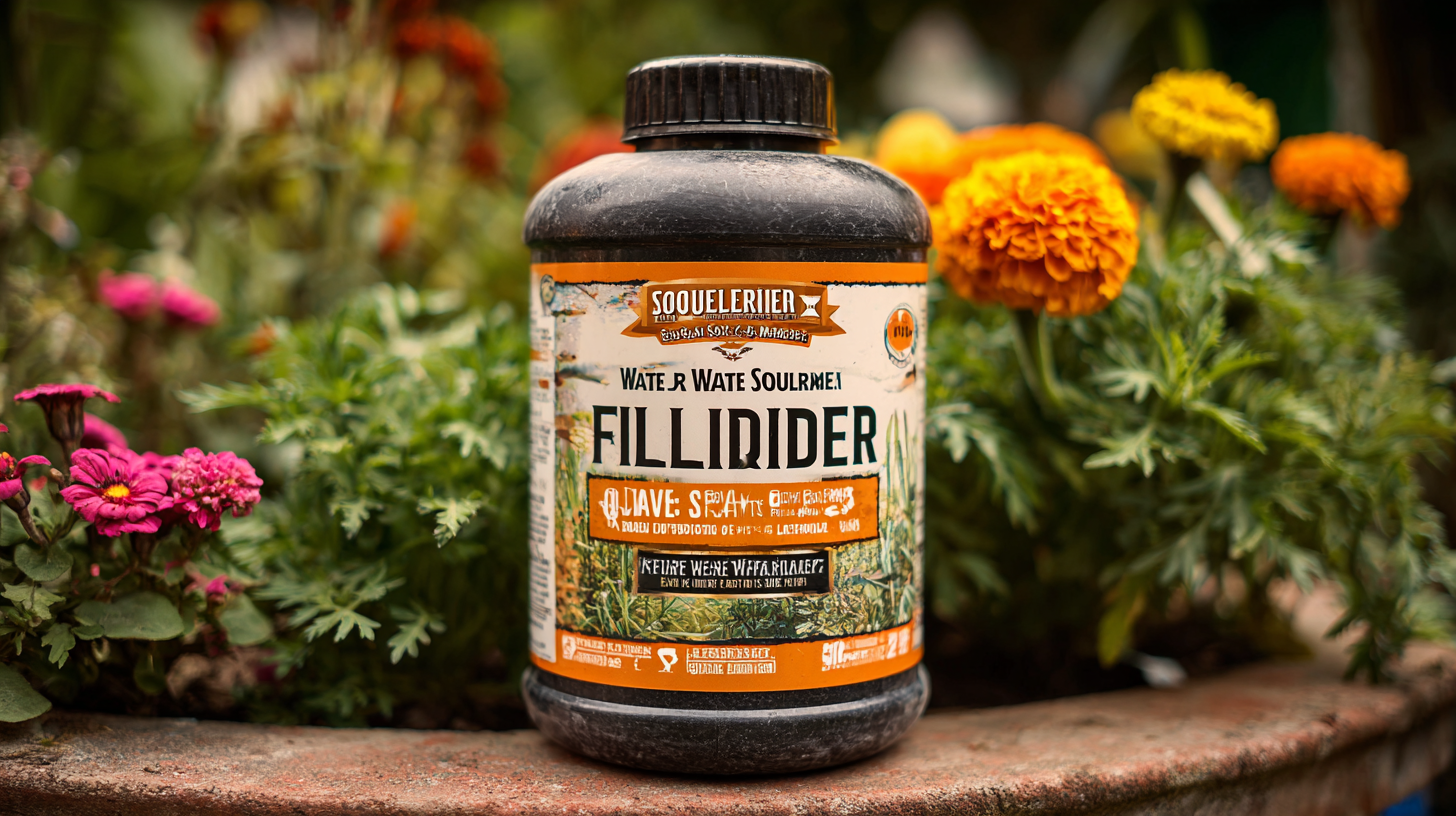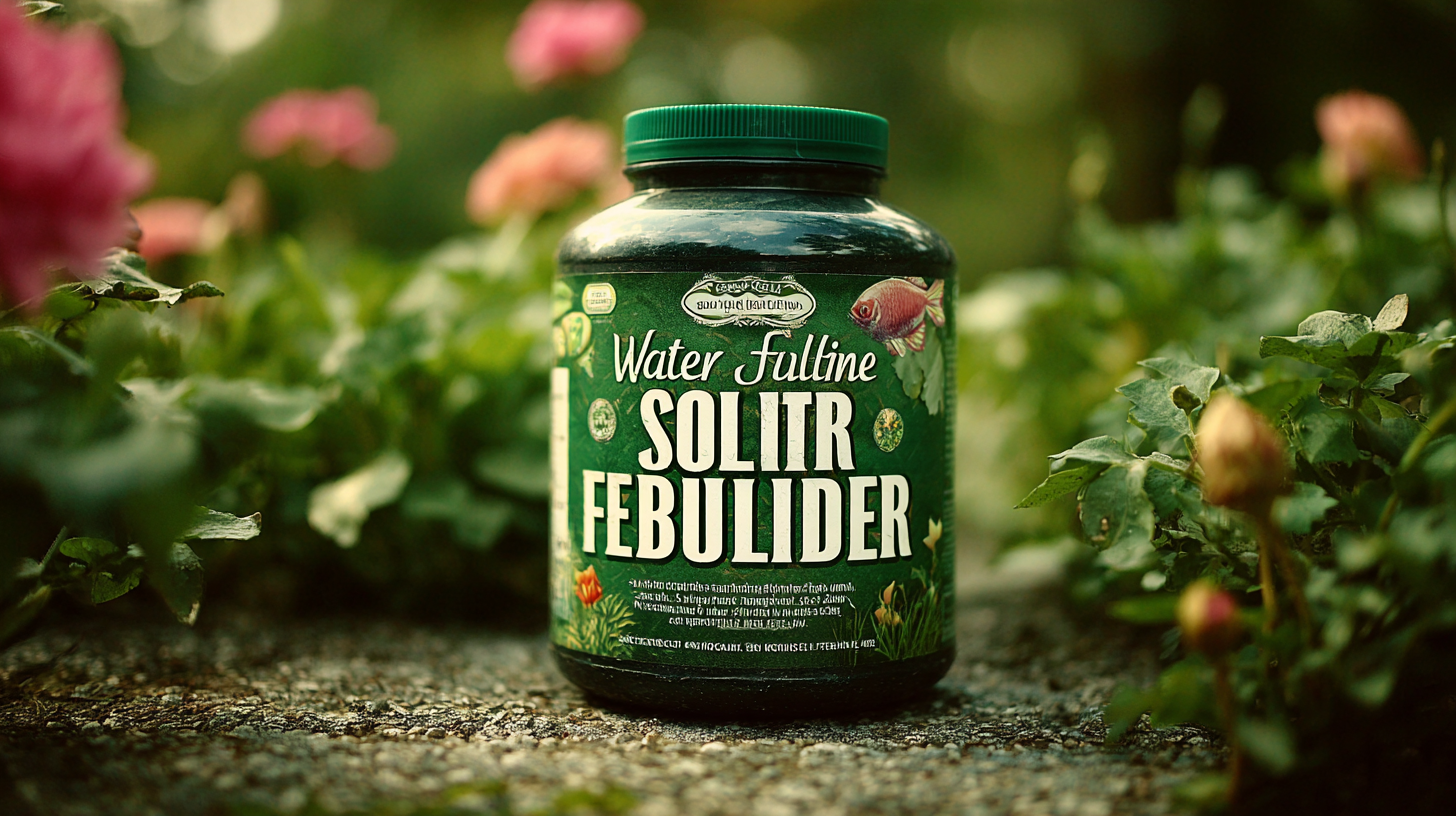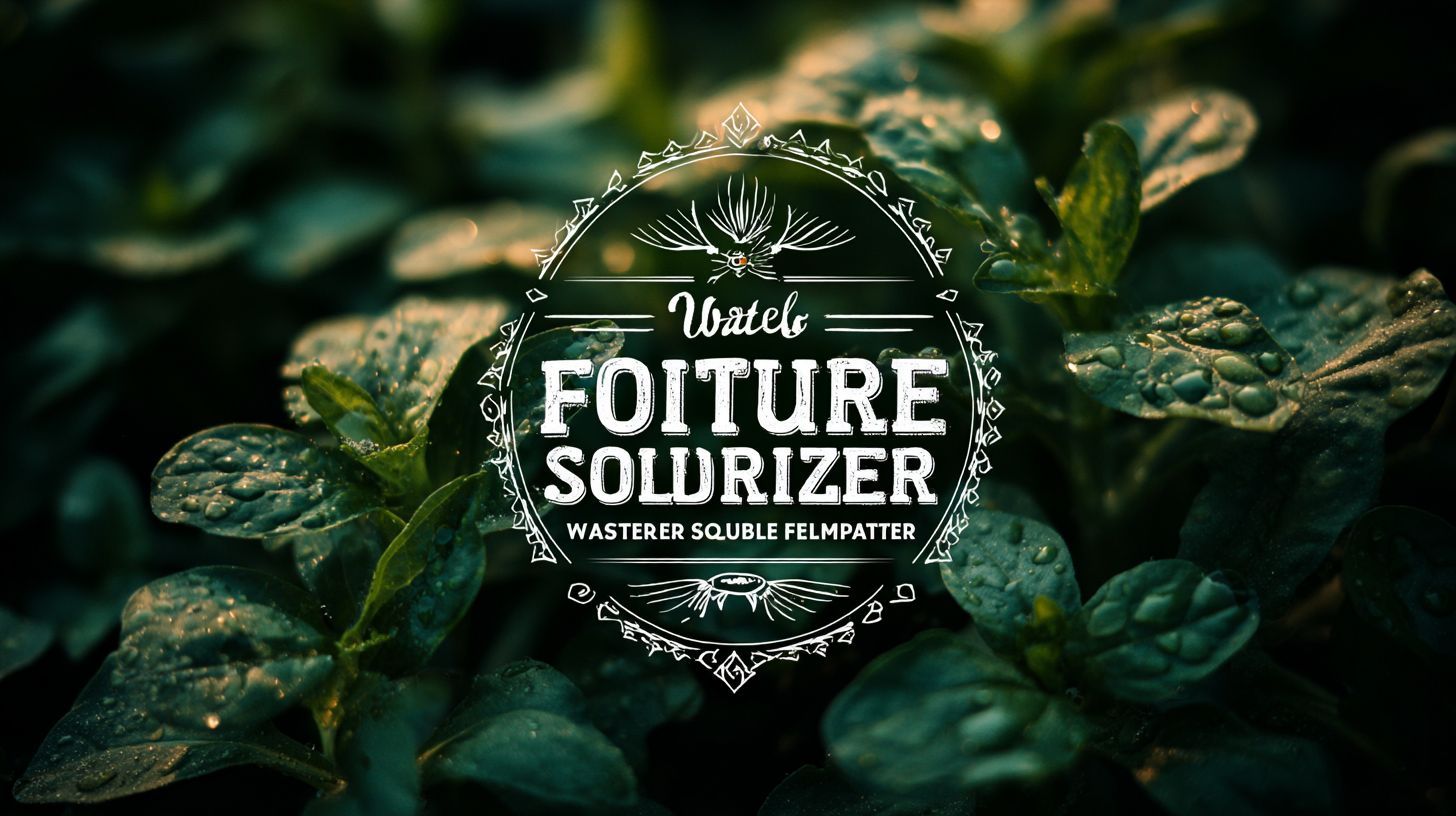In the ever-evolving world of gardening, the choice of fertilizer plays a crucial role in determining the health and yield of your plants. Among various options available, Water Soluble Fish Fertilizer has emerged as a popular choice for gardeners seeking an effective and environmentally friendly solution. As we step into 2025, understanding the latest technological advancements and trends in fertilizer production becomes essential for maximizing plant growth.

This ultimate guide aims to equip you with the knowledge needed to select the best Water Soluble Fish Fertilizer tailored to your garden's specific needs. By exploring the benefits, application methods, and upcoming innovations in this field, you'll be prepared to elevate your gardening experience and achieve the lush, vibrant garden you’ve always dreamed of.
Water-soluble fish fertilizers are renowned for their nutritional benefits, essential for fostering healthy plant growth. These fertilizers are rich in nutrients, including nitrogen, phosphorus, and potassium, which provide the essential building blocks plants need. By being water-soluble, these fertilizers ensure that nutrients are readily available to plants, enhancing their absorption and promoting robust development, even in nutrient-deficient soils.
When considering the use of water-soluble fish fertilizers, it's essential to understand how they can synergize with other organic treatments. For instance, incorporating a balanced diet of plant nutrients, much like how konjac provides health benefits, can enhance the effectiveness of fish fertilizers. This combination could yield superior growth results and healthier plants.
**Tips:** To get the most out of your water-soluble fish fertilizer, apply it during the early growing season when your plants need that extra boost. Additionally, be mindful of the concentration; overly concentrated applications can harm delicate plants. Lastly, consider alternating fish fertilizer applications with other organic options to provide a more holistic nutrient approach.
This chart illustrates the nutrient content of water soluble fish fertilizers, highlighting key macronutrients essential for plant growth, including Nitrogen, Phosphorus, Potassium, Calcium, and Magnesium. These elements play a vital role in promoting healthy plant development and improving soil fertility.
When selecting a water soluble fish fertilizer for your garden, understanding the key ingredients can significantly impact your plants' health and growth. High-quality fish fertilizers are rich in essential nutrients such as nitrogen, phosphorus, and potassium, which promote strong root development, vibrant blooms, and fruit production. Research from the American Society of Agronomy indicates that a balanced NPK ratio tailored to your specific plants can increase yields by up to 20%.
Another crucial component to look for is the presence of micronutrients like magnesium, calcium, and sulfur. These elements play a vital role in photosynthesis and overall plant vigor. Studies show that plants receiving adequate micronutrients exhibit improved resistance to pests and diseases. Therefore, when choosing a product, look for ones that include a comprehensive micronutrient profile.
**Tip:** Always check the fertilizer's packaging for the NPK ratio and ingredient details. Opt for products verified by third-party certifications for quality assurance. Additionally, consider the product's source; sustainably harvested fish waste is not only environmentally friendly but also beneficial for enhancing soil biology.

When it comes to fertilizing your garden, the choice between organic fish fertilizers and chemical alternatives can significantly impact both your plants and the environment. Organic fish fertilizers are derived from natural fish byproducts, providing a rich source of nutrients that promote healthy plant growth without the harsh chemicals found in synthetic fertilizers. This organic option enhances soil fertility, encourages beneficial microorganisms, and leads to an overall healthier garden ecosystem.
Moreover, the environmental benefits of using organic fish fertilizers are substantial. They contribute to reduced water pollution as they are less likely to leach harmful nitrates and phosphates into local waterways, which can cause algal blooms and harm aquatic life. Additionally, organic fertilizers improve soil structure and increase its ability to retain moisture, ultimately reducing the need for frequent watering. By opting for organic fish fertilizers, gardeners not only support sustainable practices but also foster a thriving environment for both plants and wildlife.
When utilizing water-soluble fish fertilizer, understanding the best application techniques is essential for maximizing its benefits across different garden types. According to the National Sustainable Agriculture Information Service, fish fertilizers are rich in nitrogen, phosphorus, and potassium, essential macronutrients that promote vigorous plant growth. When applying, dilute the fish fertilizer to a ratio of 1:20 with water, as this prevents root burn while ensuring that nutrients are effectively absorbed by plants.

For container gardens, using a watering can fitted with a fine rose will help distribute the fertilizer evenly without disturbing the soil structure. A biweekly application schedule during the growing season can significantly enhance plant performance, as suggested by the Independent Garden Center Network, which reported a 20% increase in yield for plants treated with fish fertilizer compared to those using synthetic alternatives. Similarly, in vegetable gardens, a foliar spray application can be particularly beneficial during flowering and fruiting stages, as the plants can absorb nutrients directly through their leaves, enhancing overall nutrient uptake and boosting crop quality.
When choosing the best water soluble fish fertilizer for your garden, a comparative analysis of various brands is essential to understand their nutrient profiles and benefits. Recent insights into alternative protein sources, including plant-based seafood and fertilizers, have emphasized the use of sustainable nutrition in gardening. Many water soluble fish fertilizers are rich in essential nutrients like nitrogen, phosphorus, and potassium, and their effectiveness can vary significantly between brands. By examining the metabolic profiles of fish sources and their nutrient density, gardeners can make informed decisions that align with both ecological sustainability and plant health.
Moreover, as the food industry transitions towards more sustainable practices, the appeal of using fishery byproducts in fertilizers is becoming more pronounced. These byproducts not only enrich the soil but also provide a competitive nutritional profile compared to traditional animal-based fertilizers. Research shows that alternative protein sources can also enhance the nutrient density of the fertilizer, thereby optimizing plant growth and resilience. With varying formulations available, it's important to evaluate the specific benefits and drawbacks of each water soluble fish fertilizer brand to choose the one that best suits your garden's needs.
